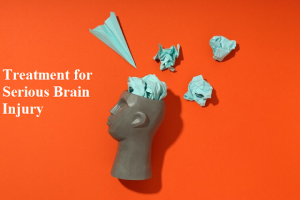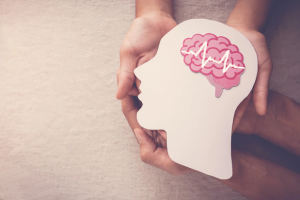Springfield, Virginia Feb 14, 2023 (Issuewire.com) - In this post, we will explain how Support groups provide an opportunity for people living with brain injuries to connect with others who understand their challenges. In addition, these groups offer valuable support and resources to help people adjust to their new reality and manage the day-to-day challenges of living with a brain injury.
Supporting Brain Injury Victims: The Positive Impact of Support Groups
After suffering a traumatic brain injury, it can be difficult for survivors or their loved ones to adjust to life changes and cope with daily challenges. However, forming a support group for those affected by brain injuries may be the answer. Brain Injury Support for Veterans typically involves a designated leader who helps organize meetings and field questions. This leader also serves as a mentor and guide to other group members on issues related to their challenges. The groups also strive to create an emotionally safe environment where people can learn from each other and share their stories without fear of judgment or stigma.
The benefits of these support groups are many and varied. For survivors, connecting with others who have gone through similar experiences can help them feel less isolated, provide practical advice on coping strategies and give them insight into how other people have managed their lives after such a life-changing event. In addition, it allows those affected by brain injuries to confront common misconceptions about their condition head-on in an atmosphere of understanding and acceptance.
Support groups for caregivers provide even more substantial help – providing practical advice on how best to care for someone with a brain injury as well as possible resources in the form of doctors, medical centers, therapists, and more that could be used to improve their loved one's quality of life.
What is a Brain Injury?
A brain injury is a severe and life-altering event that can happen to anyone at any time. People of all ages and backgrounds can be affected by brain injuries ranging in severity from mild concussions to more debilitating injuries requiring long-term care.
While the effects of a brain injury can be physical, cognitive, emotional, and behavioral, one of the most challenging aspects of living with a brain injury is the isolation and loneliness that can come with it. People with brain injuries often face significant changes in their lives, including loss of employment, social isolation, and financial strain.
Access to quality medical care is also essential for people with brain injuries. Those who harbor sustained trauma to the brain may experience lasting physical and cognitive impairments, which can significantly impact their independence. Physical, occupational, and speech therapy can help restore function and maximize the potential for lifelong recovery.
Types of Brain Injuries
Many types of brain injuries can profoundly affect a person's life. Support groups provide invaluable resources for those affected by these injuries.
One of the multiple common kinds of brain injury is a concussion. Concussions can occur after a blow to the head or from sudden acceleration or deceleration of the head, such as in a car accident. Signs of trauma can include headache, dizziness, nausea, confusion, and memory problems. A concussion can range from mild to severe and may require hospitalization. In some cases, concussions can lead to long-term problems.
Another type of brain injury is a traumatic brain injury (TBI). A TBI occurs when an outside force damages the brain, such as from a fall or car accident. A TBI can range from mild (a concussion) to severe (coma or death). Symptoms of a TBI can include headaches, dizziness, confusion, memory problems, and changes in mood or behavior. A TBI can require hospitalization and result in long-term impairments.
A stroke is another type of brain injury that can occur when blood flow to the brain is interrupted. This interruption can be caused by a blockage (ischemic stroke) or bleeding (hemorrhagic stroke). Strokes can cause paralysis, difficulty speaking, and changes in vision and sensation. Strokes can be fatal or result in long-term impairments.
The Positive Impact of Support Groups for Brain Injury Victims
The support of family and friends is vital for those who have suffered brain damage, but being around others who have been through a similar experience can be hugely beneficial. Support groups provide an opportunity to share concerns and frustrations and offer and receive advice in a non-judgmental environment.
For many brain injury survivors, their injury can isolate them from the outside world. As a result, they may feel that nobody understands what they are going through. A support group can provide much-needed companionship and social interaction. It can also help to normalize some of the challenges they are facing.
In addition to the emotional support that groups offer, they can also be a great source of practical information. Members will often have first-hand experience with various therapies, treatments, and services and can offer advice on which ones may be worth considering. They can also provide tips on how to cope with specific challenges related to brain injury.
Finally, support groups are often an invaluable source of motivation. Listening to other people's success stories can inspire survivors to strive for similar results. They also provide a sense of solidarity and hope that the future may be brighter than they fear.
Benefits of Being Part of a Support Group for Brain Injury Victims
There are many benefits to being part of a support group for brain injury victims. These groups offer a secure and supportive atmosphere for people to share their experiences and feelings. They can also offer practical advice and support.
Being part of a support group can help you to:
- Understand your injury and how it has affected you
- Come to terms with your changed identity
- Accept that your life has changed and learn to live with your new reality
- Connect with others who have been through similar experiences
- Share practical information and tips on coping with the effects of brain injury
- Receive emotional support from people who understand what you are going through
- Build self-confidence and feel more positive about yourself and your future
Different Types of Support Groups and How to Find One
There are different types of support groups for brain injury victims, each with its focus. There are support groups for caregivers, loved ones, and medical professionals. There are also support groups for people with specific brain injuries, such as traumatic brain injury (TBI), aneurysm, stroke, and cerebral palsy.
Start by asking your doctor or case manager for suggestions to find a support group. You can also search online or look in the phone book. When you contact a group, ask about their meeting times, locations, and membership requirements.
Several national organizations offer support for brain injury victims and their loved ones if you're still looking. For instance, the Brain Injury Association of America (BIAA) provides information, advocacy, and other resources, including a searchable database of local support groups. The National Alliance for Caregiving also has an extensive list of resources to help caregivers connect with support groups.
Finally, remember local community centers and libraries, which often have postings or newsletters detailing local support groups.
No matter what type of support group you're looking for, remember that building connections with others who understand your experiences can be helpful in your recovery journey.
Tips on How to Fully Participate in a Support Group
Support groups provide an excellent opportunity for those affected by brain injury to share their experiences and coping strategies with others who understand their challenges. Here are some suggestions on how to make the most of your support group experience:
- Be an active listener. Resist the urge to always talk about yourself and listen to what others in the group are saying. It will help you learn from their experience and build empathy and connection with other members.
- Share your own story. While it can be tempting to keep your stories bottled up, sharing them can be incredibly cathartic and help others feel less alone.
- be respectful of others' stories. It is a safe space for everyone to share, so please be respectful of the courage it takes for others to open up about their brain injury journey.
- Offer support and encouragement. Whether offering a listening ear or words of encouragement, your support can make a big difference in someone else's life.
- Take advantage of resources. Many support groups have access to additional resources, like books, articles, websites, etc., that can help you further in your recovery process.
Conclusion
Supporting brain injury victims is critical to ensuring they have the best long-term quality of life after their injuries. Stroke Support Group is one valuable way to provide this support; with the correct information and resources, these groups can immensely help in aiding recovery, building resilience, and maintaining positive mental health. With that said, we encourage you to find out more about local or online support groups and consider supporting them in whatever capacity you can – whether joining an existing group or creating your own – so that brain injury sufferers may benefit from the same sense of community and understanding.
Media Contact
braininjurysvcs braininjurysvcs49@gmail.com 7034518881 8136 Old Keene Mill Road Suite B-102 https://braininjurysvcs.org/










